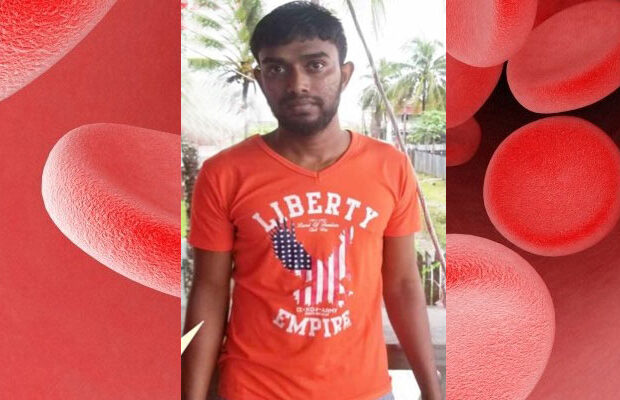Childhood was difficult for Sarju Persaud, a young man from Guyana. He was often bedridden because of injuries which would sometimes bleeds for weeks. He missed months of school, and was informally diagnosed with a “bleeding problem” but nothing more. It was only after undergoing treatment for a benign tumour caused by his condition—which had been misdiagnosed as cancer—that he was finally diagnosed with hemophilia A. Now, he is receiving factor donated by the WFH Humanitarian Aid Program. His bleeds have stopped, and he is currently scheduled for potentially life-changing surgery that he hopes will correct a previous operation done prior to his diagnosis.
Persaud received his correct diagnosis—and his first factor injection—in Trinidad. He improved immediately, but upon his return to Guyana, his only treatment was to receive donated blood. Fortunately, he was put in contact with the Guyana Hemophilia Society, and soon he was receiving donated WFH Humanitarian Aid Program factor. He has been taking factor for four years now, and has seen a dramatic improvement in his quality of life: he has less bleeds, and has not been hospitalized since beginning treatment. Persaud feels that if it were not for the donated factor, he would not be alive today. While he still suffers because of his pre-diagnosis surgery—a burst abscess means he must live with a ostomy pouch and low energy levels—he has hope that his next surgery will correct the problem and give him a more normal life.
Guyana received 750,000 IUs of donated factor in 2020, and has received over 1.6 million IUs since 2018. To find out more about the WFH Humanitarian Aid Program, please click here.
This story was adapted from an article which appeared in the August 2021 issue of the Kaieteur News.
About the WFH Humanitarian Aid Program
The WFH Humanitarian Aid Program improves the lack of access to care and treatment by providing much-needed support for people with inherited bleeding disorders in developing countries. By providing patients with a more predictable and sustainable flow of humanitarian aid donations, the WFH Humanitarian Aid Program makes it possible for patients to receive consistent and reliable access to treatment and care. None of this would be possible without the generous support of Sanofi Genzyme and Sobi, our Founding Visionary Contributors; Bayer and Roche, our Visionary Contributors; Grifols, our Leadership Contributor; and our Contributors, CSL Behring and Takeda. To learn more about the WFH Humanitarian Aid Program, visit www.treatmentforall.org.













